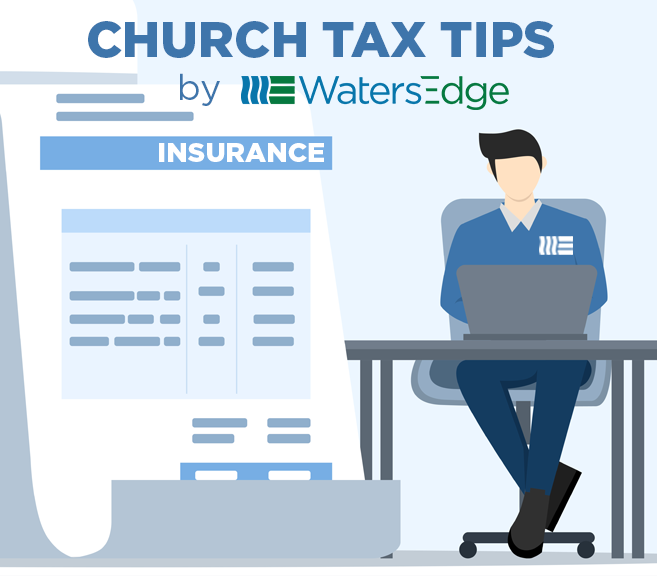WatersEdge is dedicated to supporting local churches by providing expert guidance on tax-related issues and helping navigate the financial complexities of churches with ease. We currently serve more than 270 churches through our accounting, bookkeeping, payroll, and contribution tracking services.
This article is the first in a series where we will share some of those frequently asked questions, followed by clear and practical answers to help you navigate the complexities of the financial questions your church might have. We hope these insights will be valuable in ensuring your church is adequately protected and well-prepared for the future.
One of the biggest concerns churches have today relates to the ever-changing landscape of insurance. Here are a few recent questions we’ve received:
Q: We have a church employee turning 65 years old. The finance chair and treasurer at our church are considering a change in this individual’s insurance to either a Qualified Small Employer Health Reimbursement Arrangement (QSEHRA) or an Individual Coverage Health Reimbursement Arrangement (ICHRA). What are your thoughts on this?
A: Both options are tax-advantaged healthcare benefits. The biggest difference between them is how the employee will pay for their medical expenses & insurance premiums. In both cases, the employer makes tax-deductible contributions to the plan. With a QSEHRA, allocations not utilized by the employee revert to the employer and employees pay for their medical expenses up-front and then request reimbursement. In the case of an ICHRA, there is no maximum contribution set for employers while there is a maximum contribution with a QSEHRA.
Q: Our church recently hired a new full-time youth pastor. As part of his pay, he receives an annual stipend for health insurance. He has a plan with Blue Cross Blue Shield (BCBS). What’s the best way for the church to provide this stipend? Is paying BCBS the best option so there’s no tax responsibility?
A: No matter how the insurance company is paid, this is still considered a benefit and is considered taxable income. The easiest way to handle the subsidy is simply to add the stipend to his paycheck and spread the amount out over the year.
Q: We are interested in a group health insurance policy for our church, but everyone opted out except one person. The group policy would be for a single plan. Can the church still pay for a policy even though only one person is on the plan? If so, can we make it part of his salary package?
A: Yes. “ACA allows for an exception to the requirements for situations where there is only one participant. In that situation, pre-tax reimbursement or payment of health insurance premiums is allowed with no additional requirements other than proof of coverage and proof of payment.” We would not recommend making this part of the pastor’s salary as it impacts his take-home wages. It should be separate from his salary to be considered a benefit.
WatersEdge monitors and responds to emails sent to [email protected] with questions just like these. If you have a lingering question your church needs help navigating, please send us a message. We also host an annual Church Finance Conference with in-person and virtual attendance options to go in-depth on a host of issues facing church staff related to insurance, tax filing, budgeting, and many other topics. Learn more about the Church Finance Conference 2025 at watersedge.com/cfc25

